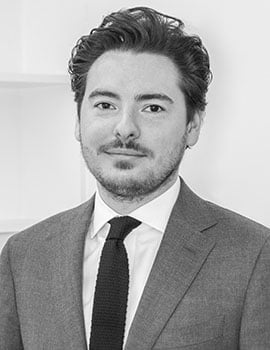An increasingly vibrant culture of pro bono advice may not be the first thing that springs to mind when you think about Singapore’s legal services market. Nevertheless, during my recent trip to the Little Red Dot, many lawyers were keen to highlight their pro bono credentials and the importance such work has to their respective law firms.
Allen & Gledhill is one such example. The firm formalised its pro bono programme on 1 January 2008 to provide a structured and organised framework for its lawyers to undertake pro bono work. Prior to that date, A&G lawyers engaged in pro bono work on an ad hoc basis. Chan Hian Young has led the programme since its launch and, despite being remunerated as a partner, undertakes only pro bono matters.
‘My role is both legal and administrative – apart from advising and assisting charities, I also run a programme for volunteers,’ he says. ‘I am the only full-time lawyer helming the pro bono programme but I have a large team of enthusiastic volunteers, partners and associates alike. About 200 lawyers have volunteered under the pro bono programme.’
The focus of the programme is advising and assisting charities and institutions of a public character (IPCs), which, Hian Young explains, are essentially ‘gold-label local charities’ that are entitled to issue tax-exemption receipts to donors.
‘We think we can assist a lot more people by helping “people who help people”’
‘We selected charities and IPCs to be the focus of our programme because we noticed that while there were many pro bono schemes that are available to needy individuals, there were not any that charities and IPCs could turn to for advice and assistance’.
‘Advising charities and IPCs is an area where there is a need and in which the firm has the expertise to meet the need. We think we can assist a lot more people by helping “people who help people”.
‘In the past ten years I have helped set up and advised many charities and IPCs. When I see them in the news doing good work, I feel a sense of satisfaction that I have done my bit to make the world a better place. That feeling is unbeatable.’
A&G typically assists between 40 and 50 charities each year for work ranging from incorporation and registration as a charity, advice on wide-ranging issues like governance and fund-raising, and legal documents for projects undertaken by the charities.
In addition, the firm has committed to acting in around 50 criminal cases per year under the Law Society of Singapore’s Criminal Legal Aid Scheme (CLAS). All this work quickly adds up. Last year, the firm clocked up approximately 4,300 pro bono work hours valued at about S$2.4m (US$1.9m).
‘The firm believes that we should give back to society,’ Hian Young says. ‘Our clients and our employees also expect us to give back to society. Many of them ask about our pro bono programme and it is an important factor in the lawyer-client relationship and the employer-employee relationship.’
A&G is not the only Singapore firm with a comprehensive pro bono initiative. WongPartnership’s executive committee and managing partner (Ng Wai King) regularly meet to decide on the firm’s approach to the types of charitable work it should be involved in. Partners or associates who have areas of interest close to their hearts may also perform pro bono work under the firm’s umbrella.
A number of the firm’s partners have devoted their personal time to various charity/not-for-profit organisations, such as the Lakeside Family Services, the Home Nursing Foundation, BoardAgender, the Dover Park Hospice, and the Law Society’s Project Law Help, as well as the National Volunteer and Philanthropy Centre, the Leukaemia and Lymphoma Foundation, and the Singapore Association for the Deaf.
In addition, WongPartnership strongly encourages its young lawyers to volunteer at Community Legal Clinics organised by the Law Society of Singapore, the State Courts Civil Legal Clinics, and HELP Legal Clinics. Lawyers may also take on CLAS or Legal Assistance for Serious and Capital Offences (LASCO) matters.
The firm’s pro bono matters are partner led, but associates may, on their own initiative, sign up for pro bono cases with CLAS, legal aid, or any other Law Society programme, provided that when they take on a pro bono client, the matter is still managed under the care of a partner. ‘Pro bono clients are also clients of the firm and we want to ensure that all the usual compliance processes and standard of care apply to them,’ says Koh Swee Yen, a partner in the firm’s commercial and corporate disputes and international arbitration practices.
‘It is important that we do our part to foster recognition of the belief that access to justice is the right of all individuals’
‘Our aim is to contribute to society, and imbue in our lawyers a sense of public service amidst the demands of commercial practice,’ explains Swee Yen. ‘It is important that we do our part to foster recognition of the belief that access to justice is the right of all individuals, regardless of their financial means, race, gender, age, and ethnicity; and help equip the beneficiaries with basic legal knowledge and practical skills, leading to a stronger and more cohesive community.’
Corporate social responsibility (CSR), including pro bono activities, is increasingly a key ingredient considered by legal service decision makers. The Legal 500 knows from its research across various jurisdictions that in-house counsel are quizzing their instructing law firms and barristers’ chambers on their respective CSR strategies. Those firms and sets without such programmes need to think about instituting one, at the very least because it makes commercial sense to do so.
But what about Singapore’s lawyers: what do they get out of pro bono work and are there any downsides to providing free legal advice? Well, in addition to young lawyers gaining valuable additional training and experience, not to mention the good PR it can bring, Hian Young has, perhaps, the best response for encouraging a pro bono culture in your firm. ‘I am a sanguine person by nature. I have not had a bad day working on pro bono. I only remember the good days, which seems like every day.’




